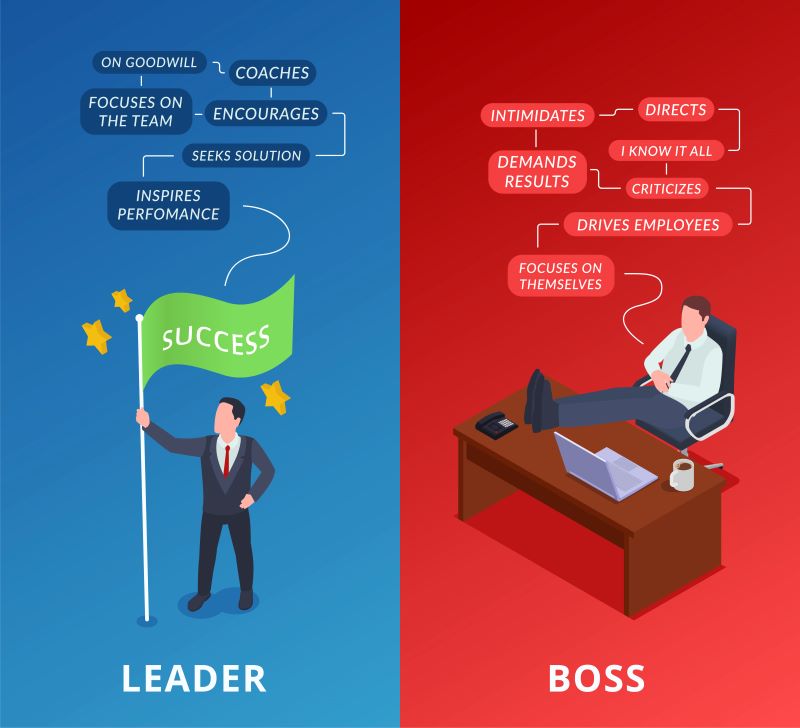Discover your Leadership Style
Leadership is a dynamic and multidimensional concept. The range of leadership styles, from autocratic to transformational, is as diverse as the leaders who employ them. Understanding your leadership style and the numerous types and styles of leadership is crucial for personal development and effective leadership. This blog will explore the world of leadership and the various leadership styles that can help you become a more influential and effective leader.
The Essence of Leadership
Leadership is fundamentally about directing, inspiring, and motivating people or groups towards a common objective. There is no one-size-fits-all approach to effective leadership; rather, you must customize your style to the demands of your team and the circumstances. Leadership philosophies are influenced by this adaptability.

Leadership Types and Styles
There are many different leadership philosophies, and each has distinctive qualities. The following are a few of the most well-known leadership kinds and styles:
1. Autocratic Leadership: Autocratic leaders want their teams to obey their directives without question and make judgements on their own. This approach can inhibit creativity and innovation but works best when prompt, decisive action is required.
2. Authoritarian Leadership: Authoritarian leaders have a lot of authority but could be more receptive to criticism than autocratic leaders do. They demand accountability and establish clear expectations.
3. Authoritative Leadership: Visionary and motivating leaders are authoritative. They give team members a sense of purpose and direction, enabling them to take independent actions within the larger goal.
4. Transformational Leadership: Change agents are transformational leaders. By providing a compelling vision and promoting a culture of continual improvement, they motivate their teams. In surroundings that are original and energetic, this style is especially effective.
5. Situational Leadership: Situational leaders modify their influencing approach in accordance with the needs of their team and the particular situation. Their adaptability enables them to function well in a range of circumstances.
6. Transparent Expectations and Processes: Transparent Expectations and Processes are the emphasis of transactional leaders. Depending on their performance and adherence to predetermined regulations, they award or punish team members.
7. Trait Leadership Theory: According to trait leadership theory, some people are just better leaders by nature because they possess specific personality traits like charisma, self-assurance, and intelligence. This notion is questionable, though, as there are many variables that affect how effective a leader is.
8. Servant Leadership: Servant leaders put their team members’ needs first and work to assist and serve them. This approach is based on cooperation and empathy.

How to Discover Your Leadership Style
A crucial first step in your leadership path is recognising your leadership style. Consider these steps to determine your personal style:
1. Self-Evaluation: Consider your past experiences as a leader and your innate tendencies. Which personality type best describes you: the rule-maker, the team builder, or the visionary?
2. Feedback: Ask your coworkers, bosses, and subordinates for their opinions. They can offer insightful information on your management style and how it affects the team.
3. Education and Training: Take part in coaching, workshops, or leadership development programmes. Discovering your preferences and opportunities for development can be aided by learning about various leadership types and styles.
4. Trial and error: Experiment with several leadership philosophies in a range of circumstances. To improve your strategy, take lessons from your triumphs and mistakes.
5. Self-Reflection: Consistently consider the results of your leadership experiences. Analyze what went well and what may be done better.

Leadership Styles in Management
The choice of leadership style has a big impact on organisational success and team performance in management. Various circumstances could call for various management strategies:
1. Project Management: Transformational and situational leadership are frequently combined to create effective project management. The challenge for project managers is to motivate their team while adjusting to shifting project needs.
2. Team Management: Servant leadership encourages cooperation, trust, and a focus on the well-being of the team, which is useful while managing a team.
3. Crisis management: To make prompt, informed judgements in a crisis, a strong or autocratic leadership style may be required.
4. Change Management: When executing organizational changes, transformational leadership is essential. The team needs to be motivated by the leaders to accept and adapt to change.
What are you still doing here? Your Future Employer is looking for you at IDJF! Sign Up to Connect
Conclusion
In conclusion, leadership is a dynamic and complex idea with a wide range of forms and styles. Your leadership style should be in line with your own qualities, the requirements of your team, and the current circumstance. The most successful leaders are those who can modify their strategy to suit the needs of the situation. You may become a more effective leader in any professional situation by identifying your particular leadership style and continually improving your abilities. Regardless of whether you want to command respect or
inspire transformation, or serve your team, the key to success is embracing and refining your own leadership style.





